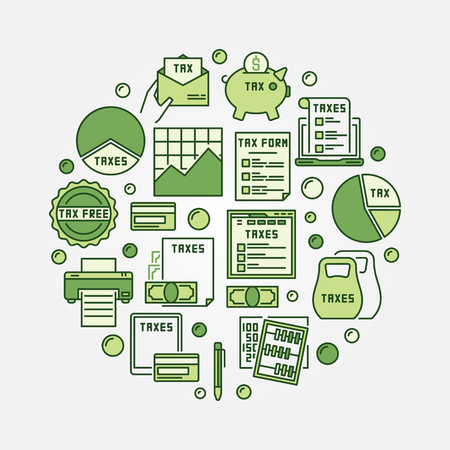1. What Is a Credit Score and Why Does It Matter?
If you live in the United States, your credit score is one of the most important numbers in your financial life. But what exactly is a credit score, and why does it matter so much?
Understanding the Basics
A credit score is a three-digit number that represents your creditworthiness — basically, how likely you are to pay back borrowed money. Lenders, landlords, and even some employers use this number to decide if they can trust you with loans, apartments, or jobs.
What Is a Good Credit Score?
Credit scores typically range from 300 to 850. Here’s a quick look at what different score ranges mean:
| Score Range | Rating | What It Means |
|---|---|---|
| 800–850 | Excellent | You’ll get the best rates and terms on loans and credit cards. |
| 740–799 | Very Good | Lenders see you as a very dependable borrower. |
| 670–739 | Good | You’re considered an average or slightly above-average risk. |
| 580–669 | Fair | You might have trouble qualifying for some loans or pay higher interest rates. |
| 300–579 | Poor | You’re seen as a risky borrower and may be denied credit. |
Why Do Credit Scores Matter?
Your credit score can impact many areas of your life. Here are some common situations where your score matters:
- Getting Approved for Loans: Banks check your score before giving you an auto loan, mortgage, or personal loan.
- Interest Rates: Higher scores usually mean lower interest rates on loans and credit cards, saving you money.
- Renting an Apartment: Landlords often check your credit to decide if you’re a reliable tenant.
- Utilities and Cell Phones: Some companies require a good credit score to set up service without a deposit.
- Certain Jobs: Employers in fields like finance may review your credit history during the hiring process.
The Bottom Line: Your Credit Score Follows You Everywhere
Your credit score isn’t just about borrowing money. It can shape where you live, how much things cost, and sometimes even where you work. That’s why understanding how it works is so important for life in America.
2. How Credit Scores Are Calculated
When you hear about credit scores in the United States, its important to know that several key factors go into calculating your score. Understanding these elements can help you make smart financial decisions and improve your score over time. Lets break down each major factor so you know exactly what lenders are looking for.
Main Factors That Impact Your Credit Score
| Factor | Percentage of Score | What It Means |
|---|---|---|
| Payment History | 35% | Your track record of paying bills on time. Late or missed payments hurt your score the most. |
| Credit Utilization | 30% | The amount of credit you’re using compared to your total available credit. Keeping balances low helps your score. |
| Length of Credit History | 15% | How long your credit accounts have been open. Older accounts show stability and boost your score. |
| Credit Mix | 10% | The variety of credit types you have, like credit cards, auto loans, and mortgages. A healthy mix is better. |
| New Credit Inquiries | 10% | How often you apply for new credit. Too many recent applications can lower your score temporarily. |
Breaking Down Each Factor
Payment History (35%)
This is the biggest chunk of your credit score. Lenders want to see that you pay all your bills—like credit cards, student loans, and car payments—on time. Even one missed payment can ding your score, so set reminders or use automatic payments if possible.
Credit Utilization (30%)
This looks at how much of your available credit youre using. If you have a $5,000 limit across all your cards and you’re carrying a $1,500 balance, your utilization is 30%. Experts recommend keeping it under 30% for the best results—lower is even better!
Length of Credit History (15%)
The longer youve had credit, the more trustworthy you appear to lenders. This includes how long your oldest account has been open and the average age of all your accounts. Avoid closing old accounts unless absolutely necessary.
Credit Mix (10%)
Lenders like to see that you can manage different types of credit responsibly. Having both revolving accounts (like credit cards) and installment loans (like car or student loans) can give your score a small boost.
New Credit Inquiries (10%)
If you apply for several new credit cards or loans in a short period, it can temporarily drop your score. These are called “hard inquiries.” Checking your own credit report, however, does not impact your score.

3. The Major Credit Bureaus in the U.S.
When it comes to credit scores in the United States, three major credit bureaus play a crucial role: Equifax, Experian, and TransUnion. These agencies collect, manage, and report your credit information to lenders, landlords, employers, and sometimes even insurance companies. Understanding how these bureaus work can help you keep your credit score healthy and avoid any surprises when applying for loans or new credit cards.
Who Are the Big Three?
| Credit Bureau | Founded | Headquarters | Main Role |
|---|---|---|---|
| Equifax | 1899 | Atlanta, Georgia | Collects and reports credit data for individuals and businesses |
| Experian | 1996 (U.S. operations) | Costa Mesa, California | Manages consumer and business credit information globally |
| TransUnion | 1968 | Chicago, Illinois | Gathers credit history data and provides risk assessments |
How Do Credit Bureaus Collect Your Information?
The three bureaus receive information about your financial behavior from a variety of sources. This includes banks, credit card companies, mortgage lenders, auto lenders, collection agencies, and sometimes utility companies. These businesses regularly report details like payment history, loan balances, available credit, and any missed payments or defaults to the bureaus.
The Type of Data They Gather:
- Personal Information: Name, Social Security number, date of birth, addresses, and employment history.
- Credit Accounts: Types of accounts (credit cards, loans), dates opened, balances owed, payment history.
- Credit Inquiries: A record each time someone checks your credit report (for example: when you apply for a new card).
- Public Records: Bankruptcies, foreclosures, tax liens (though most negative public records have been removed in recent years).
- Collections: Past-due accounts sent to collection agencies.
The Differences Between Each Bureau
While all three bureaus perform similar functions, not every lender reports to all three. This means your credit reports—and potentially your credit scores—may differ slightly between Equifax, Experian, and TransUnion. It’s smart to check each report regularly to make sure all your information is accurate.
Why Does This Matter?
Lenders may pull your credit report from just one bureau or from all three before making lending decisions. That’s why it’s important to monitor each one for errors or signs of identity theft. Each American is entitled to a free credit report from each bureau once every year through AnnualCreditReport.com.
4. Understanding Your Credit Report
How to Obtain Your Credit Report
In the United States, you’re entitled to a free credit report from each of the three major credit bureaus—Equifax, Experian, and TransUnion—once every 12 months. To get your free reports, visit AnnualCreditReport.com, the only federally authorized source for free credit reports. You can request all three at once or spread them out during the year.
Reading Your Credit Report
Your credit report is a detailed record of your credit history. It’s important to understand what you’re looking at when you read it. Here’s a breakdown of the main sections you’ll find:
| Section | What It Includes |
|---|---|
| Personal Information | Your name, address, Social Security number (partially hidden), date of birth, and employment history |
| Credit Accounts | Details about your credit cards, loans, mortgages – including balances, payment history, and account status |
| Credit Inquiries | List of companies that have checked your credit recently (hard and soft inquiries) |
| Public Records & Collections | Bankruptcies, foreclosures, liens, and accounts sent to collections agencies |
| Account History | A timeline showing your payments over time for each account |
Checking for Errors in Your Credit Report
Mistakes on credit reports are more common than you might think. Look out for:
- Incorrect personal information (name, address, Social Security number)
- Accounts that don’t belong to you or duplicates of existing accounts
- Incorrect account statuses (such as late payments marked when you paid on time)
- Outdated negative information (most negative marks should fall off after seven years)
- Fraudulent activity or unfamiliar accounts that could signal identity theft
How to Dispute and Correct Errors
If you spot an error on your credit report, take action right away. Here’s how:
- Gather documentation: Collect any records that support your claim, like bank statements or letters from creditors.
- Contact the credit bureau: Dispute the error online through the bureau’s website or send a dispute letter by mail. Explain the mistake clearly and include copies (not originals) of supporting documents.
- Notify the furnisher: Contact the lender or company that reported the incorrect information and let them know about your dispute.
- Follow up: The bureau generally has 30 days to investigate and respond. They’ll update your report if they agree there was an error.
Tips for Keeping Your Credit Report Accurate
- Check your credit report from all three bureaus at least once a year.
- If you’re planning a big purchase (like a home or car), review your reports several months in advance so there’s time to fix any mistakes.
- Create reminders to check your report regularly—it’s a key part of maintaining good financial health.
5. Tips for Building and Maintaining a Good Credit Score
Actionable Strategies to Improve Your Credit Score
Building and keeping a strong credit score is important for getting loans, renting apartments, or even landing certain jobs in the United States. Here are some straightforward tips you can follow to help boost your credit score and keep it healthy:
1. Make Payments on Time
Your payment history is the biggest factor in your credit score. Always pay at least the minimum amount due on your credit cards, loans, or other bills before the due date. Setting up automatic payments or calendar reminders can help you avoid missing deadlines.
2. Manage Your Debt Wisely
Try to keep your credit card balances low compared to your credit limits. This is called your credit utilization ratio. Ideally, you should use less than 30% of your total available credit.
| Credit Card Limit | Recommended Max Balance |
|---|---|
| $1,000 | $300 |
| $5,000 | $1,500 |
| $10,000 | $3,000 |
3. Avoid Opening Too Many Accounts at Once
Each time you apply for new credit, a hard inquiry appears on your report. Too many new accounts in a short period can lower your score temporarily and make lenders think you’re risky.
4. Don’t Close Old Accounts Without a Good Reason
The length of your credit history matters. If possible, keep older credit accounts open and active, especially if they have no annual fee. This helps increase your average account age and overall available credit.
5. Check Your Credit Report Regularly
You’re entitled to a free credit report from each of the three major bureaus (Experian, Equifax, TransUnion) every year at AnnualCreditReport.com. Review these reports for errors or signs of identity theft so you can dispute any inaccuracies quickly.
Common Pitfalls to Avoid
- Missing payments: Even one late payment can impact your score.
- Maxing out cards: High balances hurt your utilization ratio.
- Ignoring debts in collections: These stay on your record for years and damage your score.
- Co-signing loans: You’re responsible if the other person misses payments.
Quick Reference Table: Do’s and Don’ts for Credit Scores
| Do’s | Don’ts |
|---|---|
| Pay bills on time Keep balances low Monitor your report Use old accounts responsibly Diversify credit types (if needed) |
Miss payments Open too many accounts at once Close old cards unnecessarily Ignore suspicious activity Max out your cards |
By following these practical strategies, you can steadily build and protect a strong credit score that will help you reach financial goals in the U.S.


